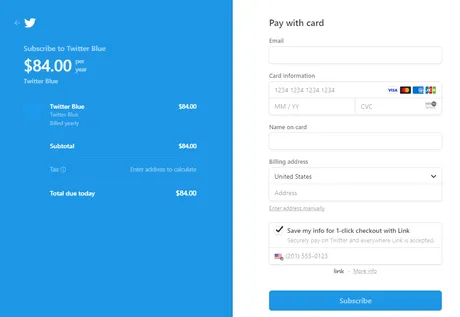
Slow, and then all at once.
Alright so I was reading this post by @acidyo the other day and I was thinking to myself wow I really need to stitch this into one of my own posts because it's perfectly on brand for certain themes I've brought up in the past.
Some notable quotes are as follows:
In a TIL kind of way, it seems to boil down to a mix of, copy what Twitter did to avoid costs from those feeding off of Reddit data such as the rise of AI using it to become better at what they do along with monetizing themselves.
Starting stronk with a good thesis.
This is something I've talked about indirectly several times now in various posts that I've written over the years. The idea being that WEB2 is an ever-so-slowly failing business model. The diminishing returns of providing free service in exchange for data can now be felt not only globally but also within an infinitely vast digital realm.
At this point I find it a bit comical that so many people just sit in their echo chamber talking shit about Elon Musk and how he's running Twitter into the ground. If Elon Musk is such a shitty guardian for the Twitter ecosystem then why are well-entrenched WEB2 ecosystems like Facebook and Reddit keep shamelessly copying his ideas? Don't get me wrong I'm not a fan of Musk but we really have to think logically on this one.
Yes, it is true.
The idea to transition to paid service is a TERRIBLE idea. It's a devolution from WEB2 back to WEB1 antics. $8 for a blue checkmark? It's fucking stupid. So we have to ask ourselves why Zuckerturd was so eagerly willing to copy the idea. The concept of limiting how much bandwidth an account can fetch from the API is also a TERRIBLE idea. So again, why is Reddit copying the idea?

Essentially anytime I feel like discussing the topic of bandwidth and scaling up this issue will inevitably present itself. It's a core fundamental piece of the puzzle that crypto needs to solve. This is why I get so excited for lesser known networks like Hive that are at the front of the line (but admittedly still have a ton of work to do).
The reason why Twitter and Reddit and Facebook and everyone else are making these radical changes to their systems (that have been working fine for many years) is that they are being disrupted right underneath our noses, and even most people in crypto don't seem to acknowledge what is happening.
Imagine that.
We get exposed to the cliché idea of 'disruption' every time some some shitcoin launches and markets itself as such, but when real disruption starts bitchslapping the Goliaths in the tech industry no one even seems to notice.
Long story short:
The reason why WEB2 services have to implement these new strategies to stay relevant is that they don't have any other options. Yes, the ideas are bad. Terrible even. Doesn't matter. The rock is easier to move than the hard-place. The rock (sustainable WEB2 business practices) is a known entity, while the hard-place (WEB3 and AI disruption) is largely unknown and getting bigger by the month. Easier to make a deal with the devil one knows.

One of the worst things about the restricted API access according to moderators of Reddit seems to be that it restricts most the helpful bots from operating.
Yep... exactly.
Discord is pulling the exact same bullshit. Throwing the baby out with the bathwater and neutering hundreds if not thousands of legitimate and useful bots because they are getting rampaged by API requests. So what's the solution?
It's the solution I've been talking about for years now.
In fact all these tech bros seem to know exactly what needs to happen. That's the crazy part. The solution actually is charging for service, which is why I find it so comical that so many people on Hive think we need to be offering free service in order to stay competitive with WEB2.
The reality of the situation is exactly the opposite.
WEB3 needs to provide paid services to force WEB2 to compete with us. Guess who's going to win that battle? Of course this requires more explanation considering how batshit insane it sounds on the surface. It's a completely new unexplored frontier that makes little sense to us in the present. Once it's in full swing we'll wonder how the world ever operated in a different way. The paradigm has reached the exponential phase of its evolution/transition.
To reiterate, all WEB2 agents already know what needs to be done. We don't even have to ask them or speculate on the matter; we can see it with the actions they perform. Providing free services are no longer an option. Devs are using AI and other methods of data-farming to not only perform what is essentially a DDoS attack, but is actually a PROFITABLE and SUSTAINABLE DDoS attack. That's BAD BAD BAD news for WEB2 and spectacular news for WEB3.
Allow me to explain more.
Using AI and free bandwidth API connections any dev anywhere in the world can scrape data from the nodes and organize that data in such a way that has real monetary value. That's terrible for WEB2 as it means these companies are not only footing the bill for the free bandwidth they are providing to the world, but also the leeches are actually profiting from it. These attacks can only get worse as time goes on.
Normally when you want to DDoS attack a network you're going to have to foot the bill to do so. The attack itself is unprofitable and the only thing to be gained is that it bogs down or halts the network being attacked (assuming that is a gain to the agent performing the attack... such as a rival company via corporate espionage).
Now imagine that this type of espionage could suddenly become profitable.
Imagine if Twitter could suddenly scrape all the data from Facebook and then filter all that data through an AI algorithm that would allow Twitter to make money off of Facebook on Facebook's dime. These are the kinds of things that are going on in the background because of the advancements in deep learning and whatever else. Free services are now being exploited to the maximum, and WEB2 is scrambling hard to mitigate the damages. Good luck with that WEB2, ya gonna need it.
WEB2 is not equipped to handle this problem.
It's funny because WEB2 has identified the problem and knows exactly what the solution is, but they can't implement the solution because the solution runs completely contrary to the entire WEB2 business model. WEB3 on the other hand is fully equipped to deal with this problem (although we haven't even come close to building the required infrastructure).
What infrastructure is required to win this battle?
Well, as it stands now, WEB3 and crypto only charge money to the end-user if the user wants to WRITE to the database. We all understand this quite well. Send a transaction on the Bitcoin network and it will exist on the blockchain until the end of time. Same goes for Hive. In theory I write this post and the network should save it on the chain as long as there is at least one node running somewhere in the world.
It's quite obvious that the infrastructure that needs to come into play is paying for the ability to READ the blockchain as well. Networks like Bitcoin are woefully incomplete in this regard. Not only can anyone access a Bitcoin node for free and fetch information from it at no cost, but also the nodes themselves are not even monetized. It is expected that the Bitcoin community will run Bitcoin nodes out of the goodness of their hearts until the end of time and that everyone is going to be running a node and we can all sing Kumbaya together into the sunset.
That is simply not how the world works. Bitcoin will not scale in this direction and is essentially fated to become a centralized network that once again revolves around data collection and the monetization of that data. All of this stems from a blatant lack of incentives. Look no farther than @theycallmedan and @starkerz for more in-depth conversation on this exact topic. Hell, they're even writing a full fledged book on it.
Networks like Hive are way ahead of the game.
As much as I hate to toot my own horn with a topic as important as this one, let's just say that networks that actually pay the node-runners DIRECTLY with emissions are obviously in a much better position to scale up. We can control our ability to scale and still ensure that at least 20 entities will have massive servers ready to handle bandwidth and API requests should we gain mainstream adoption. A network like Bitcoin cannot guarantee such things, which is why they so blatantly shill things like the Lightning Network that are also clearly doomed to centralization, censorship, and data-mining.
The problem with Hive is that once again there is no way to charge the end-user for read-only bandwidth. It simply doesn't make any sense given our current way of doing things. Luckily, unlike Bitcoin, we'll be able to transition to such a system without the need for a hardfork or anything like that. Again we just need to setup the infrastructure so that the model makes sense without crippling the ability for end-users to actually navigate the system.
Normally the model for micro-charging products like this would be completely dead-on-arrival. Regular users simply will not agree to pay a fee for basic services that are expected to be free (no matter how small that fee is). How many people actually pay for a Discord Nitro account? Those subscriptions are not cheap. $10 a month for a service that most people don't need and can get for free with the basic version? Make it make sense.
Luckily with crypto it absolutely does make sense.
Not only in terms of payment and accounts but also in terms of data monetization. For example, on a WEB2 app like Twitter how would you even pay for service? Let me check right now.

How unsurprising!
The default method of payment for such things is a credit card. This has a lot of implications that often go unnoticed. Not only does one need access to a bank... they also have to have a credit score worthy of getting the card on top of being implicitly KYCed into the system.
Crypto and WEB3 have none of these hurdles to contend with. These walls are non-existent. All WEB3 platforms have the bank accounts baked into the cake along with the currency being used. On top of that stake/reputation can be earned directly without any initial investment. It's a completely different ecosystem that 100% can not be copied by WEB2 in any fashion, even though this is absolutely required to save WEB2 from the disruption we are seeing and inevitable extinction. Quite simply WEB2 can not be saved from itself, and the advent of AI has sped up the timelines from a snail's pace to rocket-powered. It's quite the sight to behold.
Paid to _____
However, the even more important factor in all of this is that users can earn more money than they have to pay within a WEB3 ecosystem. Yes, on Hive you might have to pay an RC cost to read or write data to/from the chain. However, the value of what the end-user actually does with that data is greater than the cost to acquire it. In fact, the value of this post is essentially guaranteed to have infinity more value than the RC cost because, as it stands now, Hive has plenty of bandwidth and the value of RCs currently rounds down to zero. The payout of this post divided by zero is a ratio of infinity. This will not always be the case, but at the moment it absolutely is.
Apparently, he's also known for using his moderating powers to his advantage to silence and ban users from subreddits he's in charge of along with being known for reposting content often or deleting if they don't do too well to then re-upload it later.
Centralization
One final quote from @acidyo's post underpins the classic themes of centralization and corruption within WEB2. I've already rambled way too long so I won't continue my analysis to this effect, but I would be remiss if I didn't mention it at all. At the end of the day WEB2 simply cannot compete with WEB3, and it is only a matter of time before WEB3 has the open-source cloneable infrastructure and templates to stomp WEB2 into the mud where it belongs.
X.com?
Listen to Elon Musk talk about WEB3 without even realizing it. Insane... I wonder if he'll ever realize that crypto is the answer. I doubt it considering his entire life-experience runs contrary to it. But maybe one day once the proper templates reveal themselves.
6000 accounts
It's also important to point out that I was supposed to make a post celebrating my 6000+ account tokens on Hive. This post is the perfect time to do it. Accounts on networks like Hive will be an extremely valuable commodity once the tipping point is reached, and no one can convince me otherwise. Ten years down the road it will be unthinkable that frontends on Hive would just give accounts away for free for nothing in return (circling back to the idea that Hive accounts are NFTs that can be issued on credit without the need for KYC).

Conclusion
This topic is simply too vast and I can't say everything that needs to be said within a single discussion. Long story short crypto needs to pivot to a model that will not only charge the end-user to WRITE to the database but also one that charges the end-user to READ the database as well (aka API requests). Premium service and access to nodes that can't be overrun with API requests will obviously be a thing going forward. There will be private, semi-private, and public solutions that tackle this problem going forward. The key in the end that distinguishes Hive from most other networks is that we've been yield farming our bandwidth long before yield farming was even the narrative of the 2021 bull market cycle.
As crazy as it sounds, the future of WEB3 is charging users for service. The trick is offering good-actors a reward for their good behavior that not only completely displaces the cost of pulling/pushing data from/to the chain but is actually profitable to the end-user on the average.
At the same time bad-actors must be punished by removing all financial incentives to do business. Hive does a fantastic job of this already with the whole upvote/downvote system, even if it is a bit archaic, highly subjective, political, and prone to extreme drama. We just need to flush out the system a little bit more to make it scale into a future that WEB2 could never hope to survive.
Don't forget, WEB2 knows the answer to the problems of offering free service and are trying to implement the solution, but they'll never be able to pull it off. WEB3 is the way. It is the only business model that makes sense going forward into a world dominated by data-collection and its analysis.
Return from WEB2 Disruption has been MASSIVELY accelerated by AI & Friends to edicted's Web3 Blog
